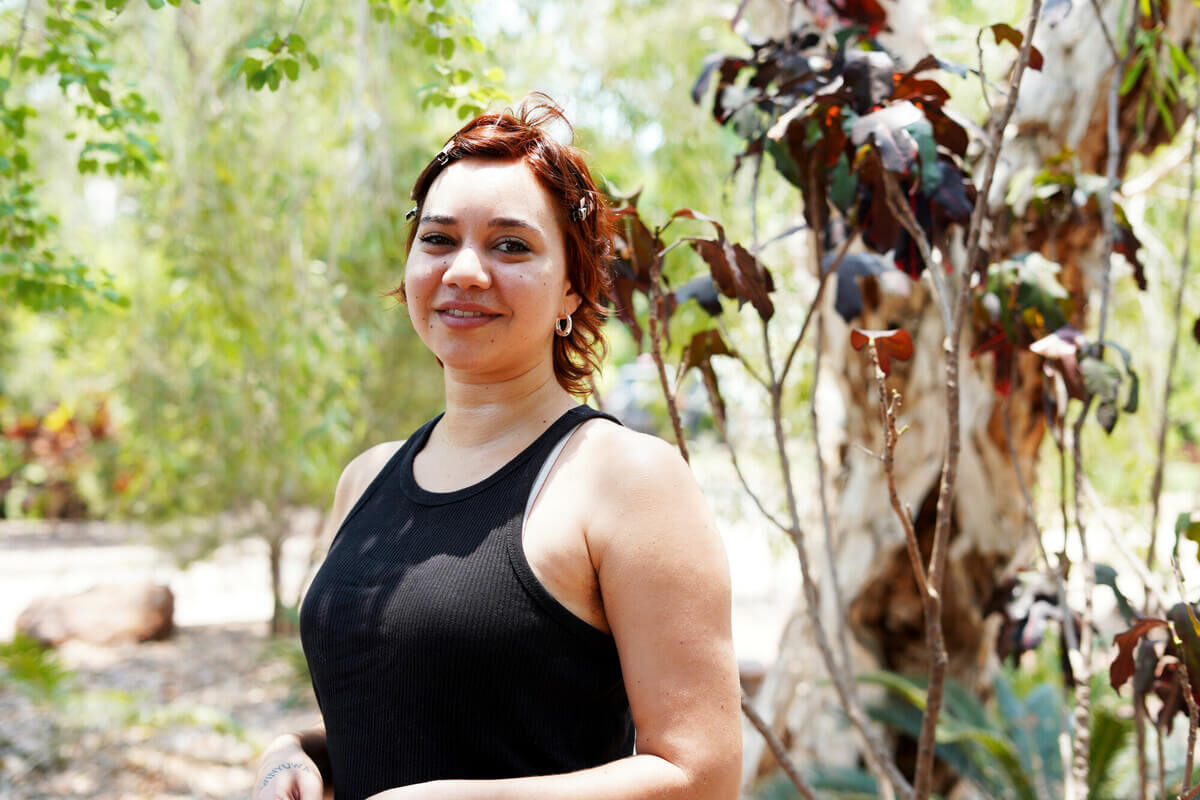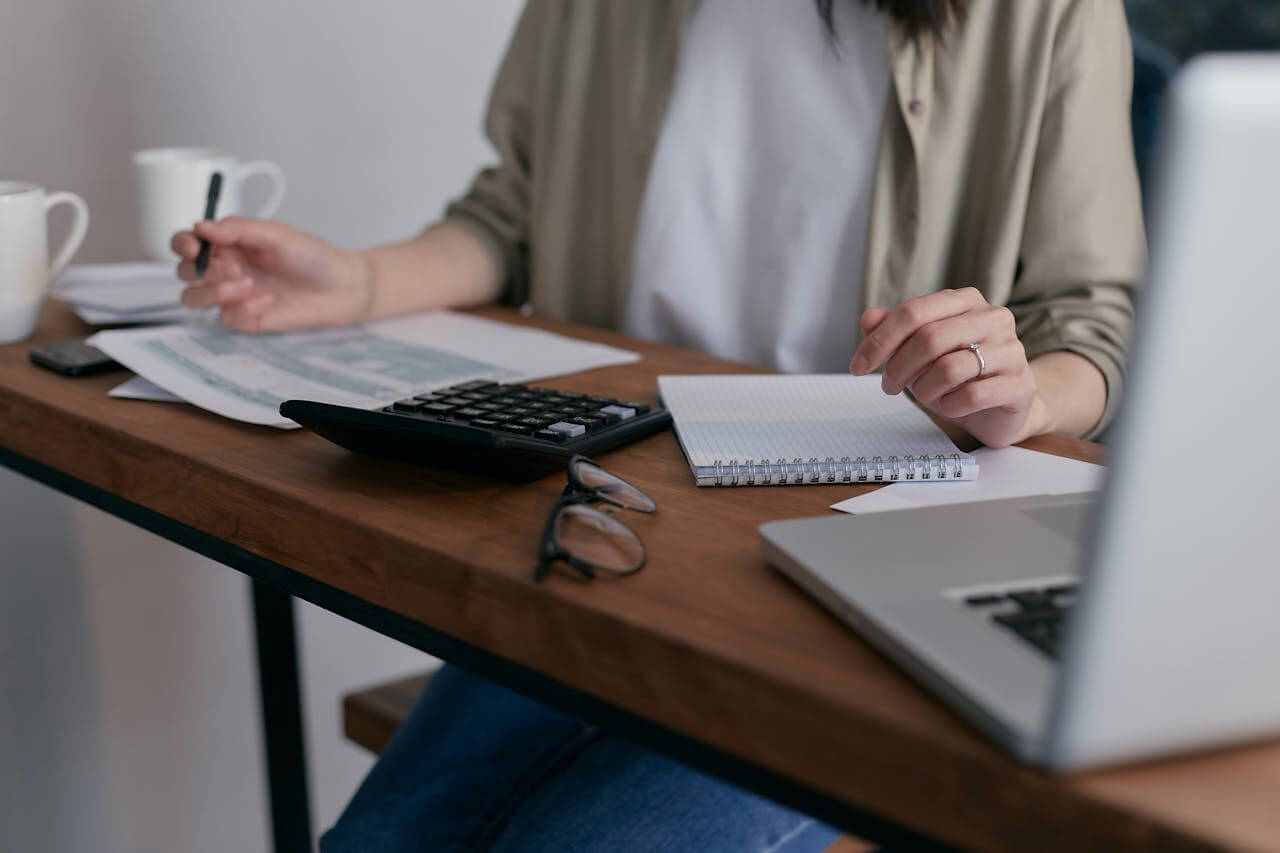Thanks to committed supporters like you, Oxfam proudly partners with the Kimberley Aboriginal Women’s Council (KAWC). At the Council’s November 2023 Roundtable in Broome, we met Obby Bedford, who kindly shared her story with us.
I am a Bunuba-speaking Miluwindi-clan woman from Fitzroy crossing. I grew up there, left for school, and now I’m back living there. I wanted to come back and learn my language and my culture properly.
The path that I chose to kind of get myself there is… I learned how to code, so computer programming. I know that we have so much analogue knowledge, it’s already on cassettes or just other kind of digital audio, and then everything that’s been written down as well. I knew that our next step forward was going to be to digitise our knowledge, just because of technology — that’s the way that it’s going.
That’s why I chose to learn how to code, and it doesn’t come naturally to me. It was really, really hard! But I kept doing it ‘cause I wanted to go back.
I finished my course and then I got in touch with Bunuba Dawangarri, which is my language group’s organisation. I got in touch with them and I said, “Hi, I want to turn one of our plant books into an app, so that we could all use it.” Instead, they offered me a job to work as the apprentice to my grandmother. It was exactly what I wanted to do, even more so.
I’m kind of the bridge between tech and culture. I’m passionate about language and about culture and about people, and empowering people — I think the way to do that is through language and culture. I want more language and culture to be practised and for it to be widely spoken as well.
I was excited to be here [at KAWC Roundtable] to see what we wanted to do as a collective, to grow together, and what we all needed to grow together. Women are the core of every single community, women are the pillars of every single community, women are the ones that get things done. If we are going to be honest and realistic, women are the caretakers and the caregivers and all that unpaid labour that goes unrecognised — without it — the communities would not run. That’s why educating women is educating a whole community.
Queer voices are very important in women’s issues. I feel like Christianity has torn apart our culture in that way, because we do have queer affirming language in Bunuba. Queerness and queer women is cultural and it is a part of Culture. I just think that it’s a part of human diversity as well, and if we’re not making space for everyone then we aren’t truly making space for the community.
I feel like homophobia is rooted in misogyny, with that being the case we need men’s sheds to actually teach, grow, and foster positive masculinity. I feel like tackling misogyny will ultimately solve homophobia as well.



